News & Media
Unisa VC keynotes Yonsei University's Anniversary Conference and signs new memorandum of understanding
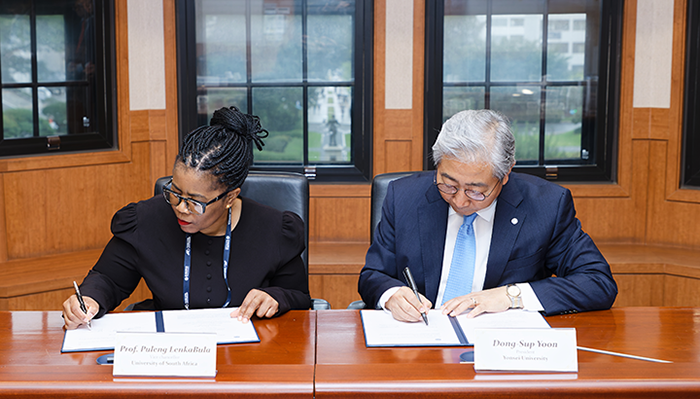
Professors Puleng LenkaBula and Dong-Sup Yoon signing the MoU on behalf of their respective institutions
When Yonsei University in Seoul, South Korea, marked its 140th anniversary in September 2025, the celebrations carried both reverence for its history and urgency for its future. Central to this milestone was an international conference that gathered global leaders in education, theology and science to reflect on the theme The Future of Christian Higher Education: Fostering a New Dialogue – Humanities, Life-Medical Science, Artificial Intelligence and Technology, and Christian Missions.
Among the distinguished voices invited to shape this dialogue was Unisa’s Principal and Vice-Chancellor (VC), Prof Puleng LenkaBula. As the keynote speaker of the conference, her contribution underscored the growing recognition that the Global South offers vital insights and perspectives to the urgent questions confronting higher education today.
Delivering a keynote address titled The Quest for a Transformative Christian Higher Education in an Unequal World, the VC challenged universities to confront historical injustices while preparing students to navigate the ethical and technological challenges of the 21st century. "Education must be more than the transmission of knowledge," she said. "It must carry the prophetic courage to critique systems of inequality and the creativity to imagine alternatives. For us in Africa and the Global South, transformation is not a theoretical pursuit; it is a lived necessity."
Her keynote wove together threads of decolonisation, ubuntu and the ethical dilemmas posed by artificial intelligence. Drawing inspiration from Nelson Mandela’s conviction that education is the most powerful weapon to change the world, she reminded the audience that the task of higher education is to equip students not only with technical skills but with empathy, ethical reasoning and social responsibility.
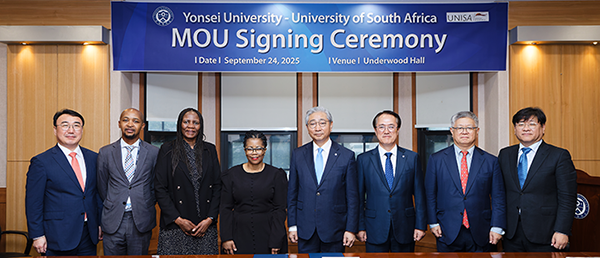
Professors Puleng LenkaBula and Dong-Sup Yoon (centre) flanked by their delegations
The conference programme reflected the breadth of this challenge. Alongside sessions on artificial intelligence, biotechnology and the future of medicine, speakers from across Asia, Africa and the Americas explored how Christian higher education can respond to ecological crises, medical inequalities and the post-SDG development agenda. In this global conversation, LenkaBula’s intervention highlighted how epistemologies rooted in Africa, ubuntu in particular, can reorient education toward community, solidarity and human dignity.
Yonsei University President, Prof Dong-Sup Yoon, lauded her contribution. "Yonsei’s history has been shaped by its Christian foundations and its global outlook," he said. "Professor LenkaBula reminded us that higher education must also carry a moral imagination, one that listens to the Global South, challenges entrenched inequities and builds solidarity across borders. Her message will remain with us as we envision Yonsei’s next 140 years."
For Unisa, the keynote was more than symbolic participation. It reinforced the university’s role in shaping the global agenda for distance and open learning, while also asserting Africa’s voice in critical international debates.
The visit also marked a significant milestone in Unisa’s ongoing partnership with Yonsei University. In 2023, LenkaBula first visited Yonsei to explore areas of mutual interest, laying the groundwork for deeper collaboration. That dialogue has now culminated in the signing of a memorandum of understanding (MoU) on the sidelines of the anniversary conference.
The MoU sets a framework for cooperation in areas such as feasibility studies, academic exchanges and capacity-building initiatives, and cements the relationship first initiated over two years ago, providing the basis for designing long-term joint projects.
"This MoU is a tangible step in building bridges between Africa and Asia," said LenkaBula. "It reflects our shared commitment to inquiry, innovation, and the pursuit of education that transforms societies. For Unisa, it also represents a continuation of our efforts to internationalise, while ensuring that African scholarship remains central to global conversations."
Yoon welcomed the agreement. "We are honoured to formalise our partnership with Unisa, an institution that shares our vision of socially impactful education," he stated. "This MoU will allow us to jointly shape projects that are academically rigorous, globally relevant, and responsive to the challenges of our times."
The final day of the conference took place at Yonsei University’s Underwood Memorial Library, located on the picturesque Songdo International Campus in the Incheon Region. Under the unifying theme Renewing Christian Higher Education for the Era of World Christianity: Empowering the Global South through Faith, Knowledge, and Innovation, presenters and participants worked hand-in-hand to chart new pathways for the future of Christian higher education.
Beyond the formal sessions, the atmosphere was enriched by campus tours, shared meals and moments of fellowship, highlighted by a memorable gala dinner hosted in the President’s beautifully arranged garden. These encounters provided fertile ground for exchanging great ideas, unveiling new perspectives and nurturing innovations that aimed to strengthen South–North collaborations.
Despite the unpredictability of the weather, the enduring message was clear: renewed hope, layered with love, empathy and patience, was rebirthed for the common good of humanity. Delegates reflected deeply on the need for a collective understanding that human beings hold dominion over creation. In this light, the conference emphasised that artificial intelligence should not be feared, but rather embraced and harnessed through collaboration, ensuring that technology serves humanity in the pursuit of justice, knowledge and human flourishing.
As delegates applauded LenkaBula’s keynote and as the MoU formalised the next chapter of collaboration, one message was clear: Unisa is not only participating in global higher education dialogues but actively shaping them, ensuring that African voices are heard and valued in the pursuit of transformative education.
* By Mathole Yvonne Masai, Directorate: Special Projects, Office of the Unisa Principal and Vice-Chancellor
Publish date: 2025/10/01


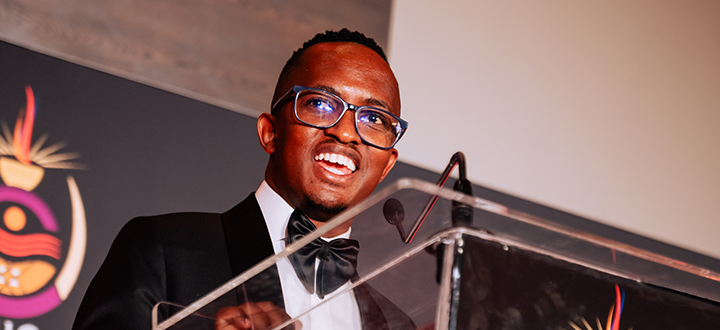 A night of firsts as Unisa’s Convocation raises funds
A night of firsts as Unisa’s Convocation raises funds
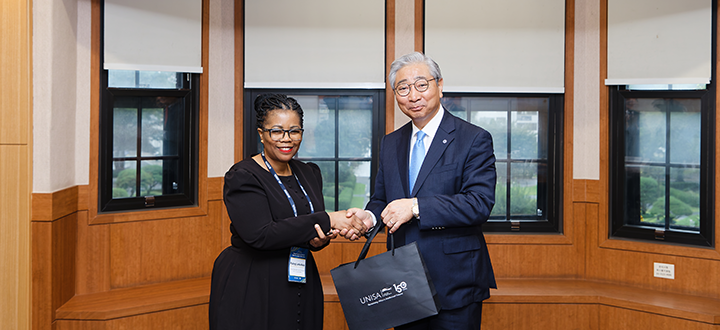 Unisa VC keynotes Yonsei University's Anniversary Conference and signs new memorandum of understanding
Unisa VC keynotes Yonsei University's Anniversary Conference and signs new memorandum of understanding
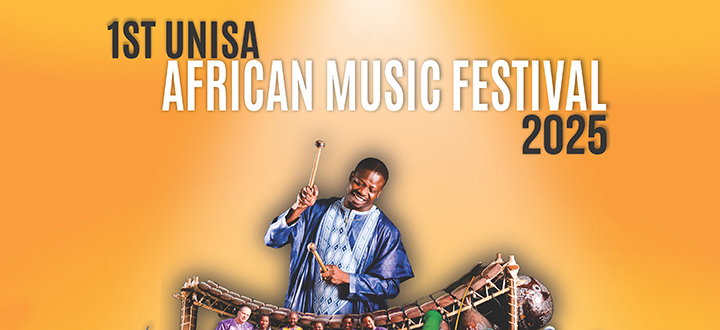 Renowned troubadour, Mamadou Diabaté to headline Unisa's African Music Festival
Renowned troubadour, Mamadou Diabaté to headline Unisa's African Music Festival
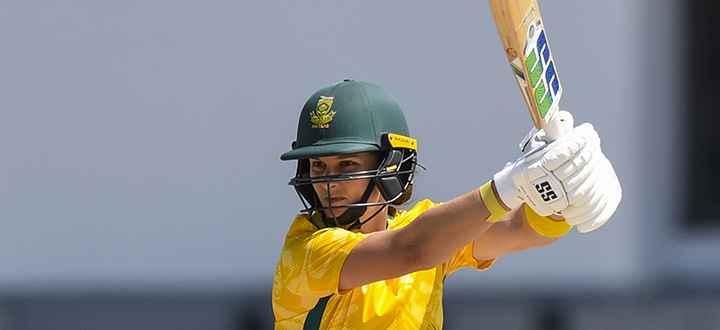 Protea Women's captain obtains a cum laude degree from Unisa
Protea Women's captain obtains a cum laude degree from Unisa
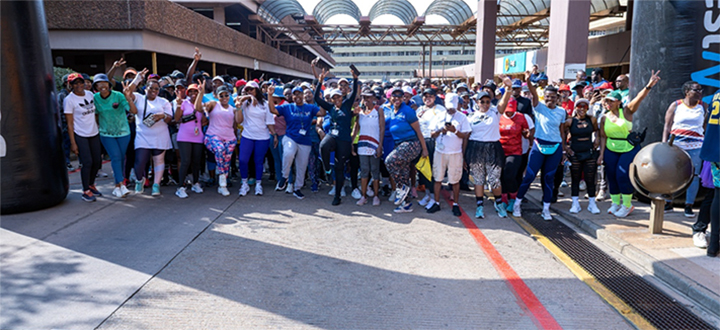 Unisa fosters a healthy working environment
Unisa fosters a healthy working environment